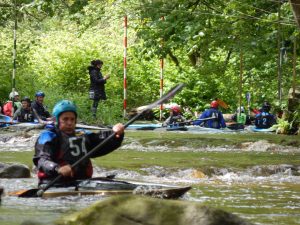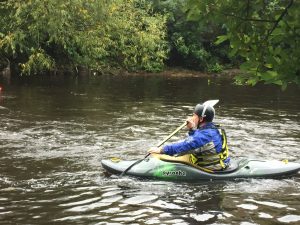 Carrying a means of calling for help is critical when paddling in coastal waters. Personal Locator Beacons (PLB’s) have demonstrated their effectiveness leading to many successful rescues.
Carrying a means of calling for help is critical when paddling in coastal waters. Personal Locator Beacons (PLB’s) have demonstrated their effectiveness leading to many successful rescues.
However, Personal Locator Beacons (PLB’s) must be registered with the Coastguard.
In the final months of 2022 British Canoeing was notified by the rescue services of two significant incidents where both RNLI lifeboats and Coastguard helicopters had responded to un-registered PLB’s. The outcome of both rescues was successful. In both incidents un-registered PLB’s were activated.
All PLB’s must be registered
By registering you will ensure a response and enable the coastguard to identify the type of craft/vessel, the likely nature of the incident, provide information to the search and rescue assets and to tailor their response. They will also have your personal and emergency contact information.
To register your PLB could not be easier, simply visit: https://www.gov.uk/register-406-beacons
Further Information:
A PLB is manually activated and transmits a distress alert directly to the Coastguard via satellites on the 406MHz frequency. The Coastguard then uses this to call out the relevant Search and Rescue Service. This enables the rescue services to pinpoint your exact location without any further description and reach the scene quickly using the PLB’s 121.5Mhz homing signal. Incidents often involve paddlers who did not expect to get into trouble. In the winter months planning trips for limited daylight is crucial. Typically incidents occur when:
- In environments or conditions paddlers feel familiar with
- Paddling alone or in a small group
- Carrying basic emergency equipment or clothing
- Subject to an unforeseen incident or had underestimated the conditions
PLB’s are becoming far more popular given their ease to carry, effectiveness in calling for help and pinpoint satellite location. PLBs can be purchased for around £250 – £300 with no further ongoing charges, and typically last between 5 – 7 years.
Further information on how to call for help at sea is issued by The RNLI and can be found: How To Call For Help At Sea (rnli.org)
British Canoeing- Safety Alert – issued January 2023
Contact: safety@britishcanoeing.org.uk



